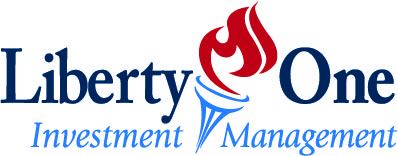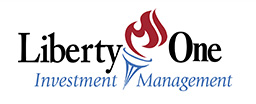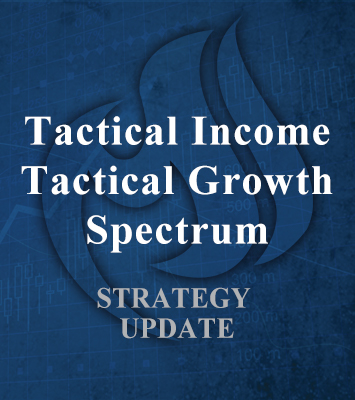Our Investment Committee has recently made adjustments in our Tactical Income Solution, Tactical Growth Solution, and Spectrum portfolios. You may be invested in one or more of these portfolios.
Within Tactical Income Solution, we sold Ivy High Income (IVHIX), AT&T (T), McCormick Company (MKC), and Kellogg Co (K). We replaced the positions with Lord Abbett Bond Debenture (LBDFX), BCE Inc (BCE), Ingredion, Inc (INGR), and Gilead Sciences (GILD).
Within Tactical Growth Solution, we sold AT&T (T) and McCormick Company (MKC). We replaced the positions with Amdocs Ltd (DOX) and Microsoft Corporation (MSFT).
Within Spectrum, we sold AT&T (T), McCormick Company (MKC), and Kellogg Co (K). We replaced the positions with Broadcom Inc (AVGO), Lamb Weston Holdings (LW), and Tyson Foods (TSN).
Lord Abbett Bond Debenture
Lower credit spreads mixed with higher default rates and lower recovery rates lead us to question the risk/reward tradeoff in junk-rated credit markets. We have benefitted from the appreciation in our investment in high yield over the second half of 2020 but portend that capital appreciation in credit markets may be more challenging in 2021, given a higher valuation starting point with questionable coupon safety as businesses work their way through the effects of the pandemic. As a result, we are shifting to incorporate a multisector bond approach, reducing risks in a yield compressed credit market while balancing risks of a possible increasing interest rate environment. The Lord Abbett Bond Debenture fund provides us with this exposure, reducing overall risks relative to the Ivy High Income Fund and generating a reasonable yield considering the current fixed income environment.
BCE, Inc. (BCE)
Being one of the 3 largest telecommunications companies in Canada, BCE operates a steady and growing telecommunications company that has a few growth catalysts in its pipeline with the deployment of 5G technology. Increasing data consumption and BCE’s investments in Fiber-To-The-Home (FTTH) are additional secular growth drivers that are unlikely to abate anytime soon. The company has a recession-resilient business with sticky customer relationships and has exhibited strong cash flow generation. The company currently spots dividend yield of over 6% and has increased its dividend every year since 2004. Canadian stocks have also historically been safer relative to other developed markets during times of distress due to the stability of the Canadian economy and currency, which offers diversification benefits to the overall portfolio.
Ingredion, Inc (INGR)
Ingredion is a leading global ingredient solutions provider serving customers in more than 120 countries. The Company refines corn oil, tapioca, potato and rice into food, beverage, and industrial grades starches and sweeteners. With current trends of low-calories, sugar free, plant-based proteins, and the movement towards clean and simple ingredients, manufacturing and supply chain adjustments for these ingredients are required. Ingredion is well-positioned to capture growth in these trends, with the growth of its specialty ingredients portfolio contributing positively to the company’s bottom line. Additionally, the company has a decent exposure to international and emerging markets, which should drive higher volume growth for its products due to higher GDP and population growth. Financially, the company earns an investment grade credit rating with a management team that is disciplined in their capital allocation approach. Ingredion has grown its dividend consecutively over the last 10 years.
Gilead Sciences (GILD)
Gilead Science has one of the more robust portfolios of drugs targeted at infectious and viral diseases in the industry. By no fault of their own, their dominance in the hepatitis C market became a victim of its own success- curing the disease which resulted in a lower patient population and sales level. At their peak in 2015, Gilead’s HCV franchise generated approximately $19billion in revenues. Since then, investors have been waiting on Gilead’s pipeline to materialize and replace some of its lost revenue from their HCV franchise. The company has been making tremendous progress by actively developing its HIV franchise and oncology pipeline to replace those lost revenues. Gilead holds a leadership position in the treatment of HIV, serving almost 80% of treated HIV patients in the US. It has also expanded its oncology portfolio, with several large bolt-on acquisitions in Kite Pharma and Immunomedics, giving them access to blockbuster-potential drugs like Yescarta and Trodelvy. With several data readouts in 2021 and a stable financial position, we believe Gilead is starting to round the corner with many growth opportunities ready to be realized. At a forward P/E of just under 10x and decent size yield, the current price makes it an attractive entry point.
Lamb Weston Holdings (LW)
Lamb Weston Holdings (LW) produces, distributes, and markets value-added frozen potato products worldwide. With 4 companies commanding the entire away-from home potato market, LW holds the biggest market share among its peers- at around 40%. The company’s operating margin in the mid to high teens are the strongest among its peers. The driver of attractive margins come from the firm’s economies of scale and strong strategic customer relationships. LW counts many of the large established restaurants (McDonald’s, Wendy’s, Burger King for example) among its customers. French fries are among the most profitable food product and key food menu item for many restaurants, which are unlikely to abate any time soon. Despite current COVID-19 disruptions in the foodservice industry, LW stand to be a beneficiary on an ensuing recovery in food-away-from-home consumption. The longer-term prospects of the company remain intact, and LW remain strongly positioned in the French fry category.
Tyson Foods (TSN)
Tyson Foods is the largest U.S. producer of processed chicken and beef. It’s also a large producer of processed pork and protein-based products. Increasing global discretionary income and higher population growth are secular tailwinds for greater meat consumption that should benefit Tyson. The company’s dominant position in the meat industry and its importance in the food’s supply chain increases the firm’s resiliency during various economic conditions. Additional potential growth drivers could come from the company’s active investments in lab grown and plant-based meats that create greater differentiation. Tyson is in a financially sound position, with a healthy balance sheet and generating record free cash flows in 2020 despite challenges from the pandemic. The company increased its dividends for 9 consecutive years and averaged a 26% dividend growth rate over the last 5 years.
Amdocs Limited (DOX)
Amdocs (DOX) provides software and services primarily to service providers in the communications industry. The company has a suite of products that assist customers with everything from digital content distribution, media monetization, identity management, and a host of other areas. DOX’s customer base is well diversified across over 300 companies operating in more than 80 countries and includes familiar names such as AT&T, Verizon, Netflix, and Disney. Amdocs exhibit high customer switching costs by providing mission critical services to its customers. The company has been profitable every year since 2002 and have consistently generated positive cash flows in both good and bad markets. The stability of its business operations has afforded the company to continue to return cash to shareholders and has raised its dividends for 8 consecutive years since initiating it in 2012.
Microsoft (MSFT)
Microsoft has long been a holding in other Liberty One portfolios and is now being introduced to the Tactical Growth Solution portfolio. Tactical Growth Solution’s primary focus is to invest in high-quality, durable, dividend-paying recession-resistant companies, which Microsoft in our opinion command those traits. The evolution of the firm’s business models to subscription-based coupled with the mission critical products and services that they offer, create higher revenue visibility and stability in their business. Its software segment is extremely capital light which becomes a significant cash flow generator for the firm, allowing Microsoft to continue paying and increasing its dividends over time. Despite Microsoft’s above-average valuation multiples, we view the company’s ability to drive revenue and margins at scale as reasonable premiums to pay for growth and durability. Additionally, Microsoft premiums are still below that of other high growth software peers, whose valuations are more reliant on expected future growth, rather than being backed by current fundamental strength.
Broadcom, Inc. (AVGO)
Broadcom owns a diverse portfolio of semiconductor infrastructure software solutions across a variety of end-markets. The firm primarily focuses on radio frequency filters and amplifiers that are typically found in smartphones like Apple’s iPhone and Samsung’s Galaxy smartphones. However, Broadcom’s exposure in serving broadband, networking, and mobility markets are all secular growth drivers with strong growth potential as digital acceleration continues to take hold. Some of this growth potential can be extrapolated from its $14billion in backlog orders, providing solid visibility on demand and recurring orders. Its recent acquisition of Symantec also serves to bolster the company’s position in having one of the more robust semiconductor infrastructure software ecosystems in the industry- an attractive competitive advantage in a competitive industry.



